2018 Intelligent Sensing Summer School
|
A two-day event on advanced Intelligent Sensing topics, including sensing people, machine and deep learning, and image and audio processing.
The School will cover sensing and machine learning topics, CIS PhD students will present one of their recently published papers during the student sessions, and a tutorial on Deep learning and IoT will introduce the participants to Keras for Deep Mining car driver behaviour, as follows: Tutorial - Deep learning and IoT: an introduction to using Keras for Deep Mining car driver behaviour Problem domain: A key application domain for IoT is Smart Transport. We will focus on classifying driving behaviour through analysing some of the data collected from sensors connected via a vehicle’s Controller Area Network or CAN bus and accessed via the vehicle’s On-Board Diagnostics (OBD)-II Interface. This data was collected as part of the Envirocar project. Our focus will be on the analysis the main factors that affect fuel consumption and for example determining if we can classify whether different car makes and to investigate if different driving behaviour lead to different classes of eco-friendly driving behaviour. Method: To classify the car vehicle sensor data, we will use Keras, a high-level neural network API, to Google’s TensorFlow as a backend in order to implement some learning algorithms using a Deep neural network (DNN), a type of Artificial Neural Network (ANN) with multiple (hidden) layers between the input and output layers. Workplan: This tutorial will start with a short overview of deep learning using Keras and will then implement a simple regression model. We will design and implement one simple DNN, either a Recurrent Neural Network (RNN) or a Convolutional Neural Network (CNN) and apply it to the OBD data. Prerequisites: Participants must bring their own Laptop with Keras, TensorFlow and the Anaconda Python distribution pre-installed and they must already have some familiarity with programming in Python, and with the Keras overview and documentation. In collaboration with IoT2US (IoT towards Ubiquitous, computing and, Science by all) Lab, QMUL, http://iot.eecs.qmul.ac.uk QMUL PhD students will receive Skills Points for participating, presenting or helping during the summer school. Registration is now closed. Contact the organiser [mail] for late registrations or any query. Where: Geography 2.20, Geography building (number 26 in [map]). |
| 29 August morning | ||||||||
| 9:15-9:45 | Registration | |||||||
| 9:45-10:00 | Welcome and opening | |||||||
| 10:00-11:00 |
Using machine learning to listen out for birds Machine learning has revolutionised automatic speech recognition. Can it do the same for other sounds we hear - such as bird sounds? This is an urgent problem since wildlife monitoring is crucial for understanding massive declines in wildlife populations, as well as future population movements caused by climate change. To solve this, in this talk we will look at state-of-the-art methods for machine learning for analysing audio signals, and combine this with recent work on methods which can generalise well from small and weakly-annotated datasets. We also illustrate the interplay between general-purpose deep learning and custom signal processing. The methods described can be applied to a wide range of tasks.
|
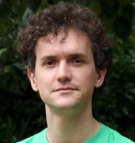
Dan Stowell | ||||||
| 11:00-11:30 | Coffee break | |||||||
| 11:30-12:00 |
Transferable joint attribute-identity deep learning for unsupervised person re-identification Most person re-identification (re-id) methods require supervised model learning using large sets of pairwise labelled training data for every single camera pair. To address this scalability problem, we develop a novel deep learning method for transferring the labelled information of an existing dataset to a new unseen (unlabelled) target domain without any supervised learning.
|
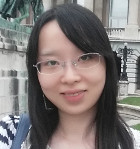
Jingya Wang |
Person re-identification | |||||
|
Deep association learning for unsupervised video person re-identification
Existing re-identification (re-id) methods mostly consider supervised learning, which requires exhaustive manual efforts for labelling cross-view pairwise data. In this work, we formulate a novel Deep Association Learning (DAL) scheme, the first end-to-end deep learning method using none of the identity labels in model initialisation and training.
|
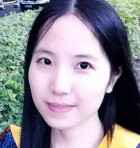 Yanbei Chen
Yanbei Chen |
|||||||
| 29 August afternoon | ||||||||
| 13:30-14:00 |
Distributed one-class learning We propose a cloud-based filter trained to block third parties from uploading privacy-sensitive images of others to online social media. The proposed filter uses Distributed One-Class Learning. A major advantage of the proposed filter over existing distributed learning approaches is that users cannot access, even indirectly, the parameters of other users.
|
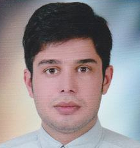
Ali Shahin Shamsabadi |
Machine learning for privacy | |||||
|
Protecting sensory data against sensitive inferences There is growing concern about how personal data are used when users grant applications direct access to the sensors of their mobile devices. In this paper, we propose a feature learning architecture for mobile devices that provides flexible and negotiable privacy-preserving sensor data transmission by appropriately transforming raw sensor data.
|
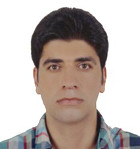
Mohammad Malekzadeh |
|||||||
| 14:00-17:00 |
Tutorial - Deep learning and IoT: an introduction to using Keras for Deep Mining car driver behaviour (session 1)
|
|||||||
| 30 August morning | |||||||
| 9:50-10:00 | Welcome and opening | ||||||
| 10:00-10:30 |
Learning to generalize: meta-learning for domain generalization Domain shift refers to the problem that a model trained in one source domain performs poorly when applied to a target domain with different statistics. We propose a novel meta-learning method for domain generalization (DG), where rather than designing a specific model that is robust to domain shift, we propose a model agnostic training procedure for DG.
|

Da Li |
Deep learning | ||||
|
Learning deep sketch abstraction A fundamental challenge for human free-hand sketch analysis is to deal with different human drawing styles, particularly in terms of abstraction level. In this work, we propose the first stroke-level sketch abstraction model based on the insight of sketch abstraction as a process of trading off between the recognizability of a sketch and the number of strokes used to draw it.
|
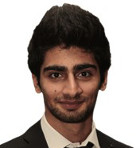 Umar Riaz Muhammad
Umar Riaz Muhammad |
||||||
| 10:30-11:00 |
Video summarisation by classification with deep reinforcement learning We propose a reinforcement learning-based weakly supervised method that exploits easy-to-obtain, video-level category labels and encourages summaries to contain category-related information and maintain category recognisability. Extensive experiments on two benchmark datasets show that the proposed approach achieves state-of-the-art performance.
|
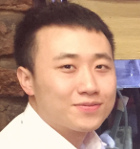 Kaiyang Zhou
Kaiyang Zhou |
Video and audio processing | ||||
|
End-to-end equalization with convolutional neural networks We introduce a general purpose architecture for equalization matching. By using an end-to-end learning approach, the model approximates the equalization target as a content-based transformation without directly finding the transfer function. We show the model performing matched equalization for shelving, peaking, lowpass and highpass IIR and FIR equalizers.
|
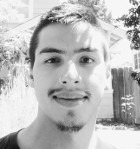 Marco Martinez
Marco Martinez |
||||||
| 11:00-11:30 | Coffee break | ||||||
| 11:30-12:15 |
Multi-camera matching of spatio-temporal binary features Matching image features across moving cameras with unknown poses and separated by a wide baseline decreases considerably the matching performance. To improve matching accuracy, we accumulate temporal information within each view by tracking local binary features that are described by comparison of pixel pair intensities.
|
 Alessio Xompero
Alessio Xompero |
View matching | ||||
|
Constrained optimization for plane-based stereo Depth and surface normal estimation are crucial components in understanding 3D scene geometry from calibrated stereo images. In this paper, we propose visibility and disparity magnitude constraints for slanted patches in the scene. These constraints can be used to associate geometrically feasible planes with each point in the disparity space.
|
 Shahnawaz Ahmed
Shahnawaz Ahmed |
||||||
|
Pose guided human image synthesis by view disentanglement and enhanced weighting loss Multi-view images synthesis aims at generating a novel viewpoint from an input image, which remains a challenging task due to occlusion and asymmetries. In this paper, we present a two-stage deep network for pose guided human image generation that performs a reconstruction followed by a refinement over the prediction.
|
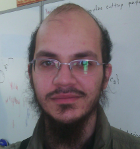 Mohamed Ilyes Lakhal
Mohamed Ilyes Lakhal |
||||||
| 30 August afternoon | ||||||||
| 13:30-14:00 |
Background light estimation for depth-dependent underwater image restoration Underwater restoration methods that compensate for the colour loss often assume constant background light and distort the colour of the water mass. To address this problem, we propose a restoration method that compensates for the colour loss due to the scene-to-camera distance of non-water regions without altering the colour of pixels representing water.
|
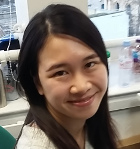 Chau Yi Li
Chau Yi Li |
Image and video processing | |||||
|
Confidence intervals for tracking performance scores We propose a simple method that analyzes existing ground-truth annotations and produces a confidence interval to deal with annotation inaccuracies. These confidence intervals quantify the uncertainty in the annotation and allow us to appropriately interpret the ranking of trackers with respect to the chosen tracking performance score.
|

Ricardo Sanchez-Matilla |
|||||||
| 14:00-17:00 |
Tutorial - Deep learning and IoT: an introduction to using Keras for Deep Mining car driver behaviour (session 2)
|
|||||||
| 17:00 | Closure | |||||||
| Logistics | ||

|

|
|
|
|
|
|
|
|
|
|
|
|
|
|
|
|
|